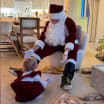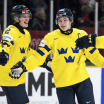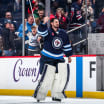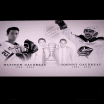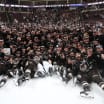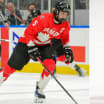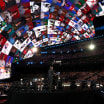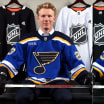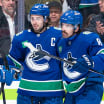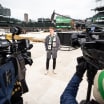Color of Hockey: Singh eager for first NHL Draft as agent
Former team scout excited to make switch, represent prospects
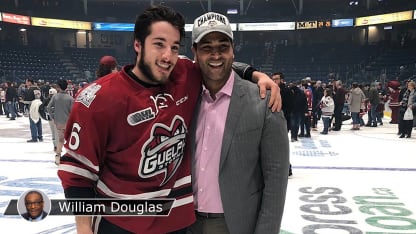
Harkie Singh said he's like a kid in a candy store when he attends the NHL Draft.
"It's a wonderful time to be involved with," he said. "It just brings the hockey world together, and it unites us."
For the 2020 NHL Draft, Singh will be in front of the candy counter rather than behind it.
The 41-year-old Toronto native worked previous drafts as a scout for the New York Islanders and Vancouver Canucks. He'll have a different view at this year's draft, being held virtually on Oct. 9-10, as an agent who's advising four eligible prospects.
"When you're drafting players, you're thinking about the Vancouver Canucks, the city of Vancouver with a huge fan base, or the New York Islanders, Nassau County and their fans," said Singh, president of Live Sports & Entertainment Inc. "I guess when you're representing a player, you're so emotionally invested and tied in with that family you just want their dreams to come true."
Singh is part of a small club. He's one of three agents of color who are certified by the NHL Players' Association to represent players in dealings with NHL clubs, along with Eustace King and Brett Peterson, both of whom are Black.
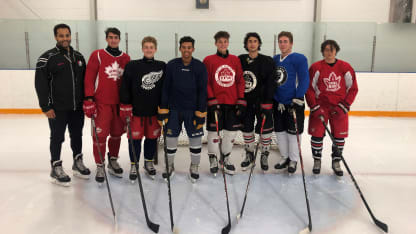
King and Peterson welcomed Singh to their ranks and said his presence reflects the changing face of hockey.
"I think it helps diversify our league," said Peterson, a defenseman who played on Boston College's 2001 NCAA championship team. "The other two gentlemen have tremendous resumes and reputations, and that's also extraordinarily important. They've got to know what they're doing and have great reputations because we don't want just random people doing it. I'm pumped that Harkie's doing well. He's doing it, and in a hard market too."
Becoming an agent is the latest turn in Singh's hockey career, one that was launched seemingly before he was born by his father, Makhan, who immigrated to Canada from India in the late 1960s.
"He had an athletic background and that was playing field hockey back in India, in Punjab," Singh said. "When he came as an immigrant to Canada, he quickly realized field hockey, although popular, wasn't more popular than ice hockey."
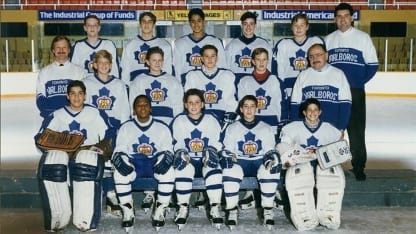
Singh's father quickly became an ice hockey fan and did what most Canadians did on Saturday nights -- watch "Hockey Night in Canada."
"My dad, his brothers and friends from India who were living in Toronto got together, and that was their Saturday night," Singh said. "Then I was born, and he realized, 'You know what -- let's get my son involved in the game. This is the national game of Canada, and we want to be part of it.'"
Harkie Singh started playing hockey recreationally and progressed to leagues as a rugged, physical defenseman. He was drafted by Belleville of the Ontario Hockey League in 1995, a shock to his parents who had "no idea or clue what the OHL was," he said.
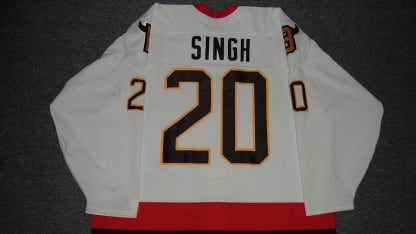
Singh, who is Sikh, experienced his own shock when he arrived in Belleville.
"I was 15-16 years old, moving away from home to a community that wasn't very diverse, there weren't people of color living there," he said. "That was challenging because I came from a big family with lots of uncles and aunts and cousins. I was lucky to be around them -- but when I moved, I was homesick, I was emotional."
Singh pressed on, fueled by his love for the game. He had stints with Windsor in the OHL, Prince George in the Western Hockey League, Vernon in the British Columbia Hockey League, Newmarket of the OPJHL and the University of Ottawa from 1995-2000.
Singh dreamed of playing professionally but knew that it wasn't in the cards because "I was a healthy scratch throughout my junior career most of the time." However, he realized that all the time spent watching from the press box or the stands made him a student of the game.
"I was a stats guy," he said. "I know analytics are talked a lot about now, but I was an analytics guy back in the '90s and early 2000s."
He also honed his hockey knowledge working at the Ice Gardens and Huron Hockey camps under Rick Cornacchia, a former OHL and international coach, and soaking in information from visiting instructors such as Ted Sator, who coached the New York Rangers and Boston Bruins.
"Harkie did everything, from teaching on the ice to babysitting, monitoring hockey players from probably six years of age to 18 years of age in the residence," Cornacchia said. "Those jobs aren't glamorous. Whatever needed to be done, he tackled it enthusiastically."
Friends urged Singh to us his skills as a scout and urged him to apply for a position with the Islanders, which had just been purchased by Charles Wang and Sanjay Kumar in 2000. He sent a resume and cover letter to the Islanders, figuring that no one was going to hire a 20-year-old university student as a scout.
"Guess what? They replied and I was shocked," Singh said. "They said, 'This is great that we have someone from a diverse community from an ethnic background, who would like to get into management or coaching or scouting."
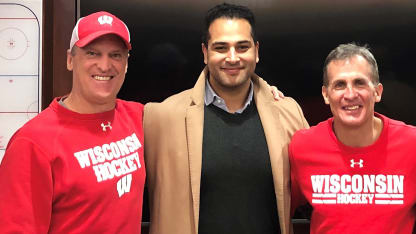
Gord Clark, the Rangers director of player personnel who was the Islanders' assistant general manager at the time, gave Singh a part-time scouting job after Sator vouched for him in a phone call. Singh eventually was promoted to a full-time scout primarily for Western Canada working under then-head scout Tony Feltrin.
"Gordie Clark -- who is my mentor -- he didn't see color or any of that. He hired me based on my skill," Singh said. "Still, when I got hired, it was intimidating. A person of color walking into the scouts room, it was really, really intimidating.
"Here you have scouts in their 40s, 50s, 60s, ex-NHL players, Hockey Hall of Famers, and you're walking into an arena in the OHL," Singh said. "Nobody ever said anything, but I felt uncomfortable at times, not because I wasn't going to learn or be respectful, but I was young and a person of color, too."
Singh combined his love of hockey and his faith by visiting Sikh temples during down time on scouting trips across North America and Europe.
"Some people go to the movies or go to the malls before a game as a scout to kill time," he said. "I went to temples and really got to understand my culture, and yet I also got to understand other people's cultures and respect them."
Singh said his co-workers made him feel welcome and comfortable by accepting his invitations to family gatherings and religious functions.
"Gordie Clark would be there, Tony Feltrin would be there. Indian weddings, cultural weddings, they embraced it," Singh said. "Mind you, there were others who didn't embrace it from other organizations who didn't know me. Did they make offensive remarks and hurtful remarks? Yeah, they did. I would laugh it off, which was the wrong thing. The reason why I laughed it off was wanting to be accepted. I didn't have a platform back then or a way to say, 'This is wrong what you're doing, this is wrong what you're saying.' It was a small percentage of people, though."
Singh scouted for the Islanders until 2006. He became an assistant with Markham of the OPJHL under Cornacchia before joining the Canucks scouting staff in 2008.
"He was a very good scout who knew his players," said Ron Delorme, the Canucks' chief amateur scout. "He's a good guy, good personality and just a kind man."
Singh segued into player representation when he served as director of player recruitment for Uptown Hockey agency from 2012-19. He decided to strike out on his own last October.
"Everything was going so well, we were hiring, putting procedures, protocols in place and recruiting players," he said. "Then the coronavirus hit, which almost put a stop to everything."
Singh still managed to be an adviser to nine players who were selected in the 2020 OHL Priority Selection draft. Now he's preparing for the emotional roller coaster that's the NHL Draft.
"I guess my job as an agent, on that day in particular, is to make sure emotionally that everyone is well," he said. "If things are great, support them. And if they're not or (things) didn't turn out how they wanted, I have to be an (amateur) psychologist or like a big brother or mentor to help them through it."


